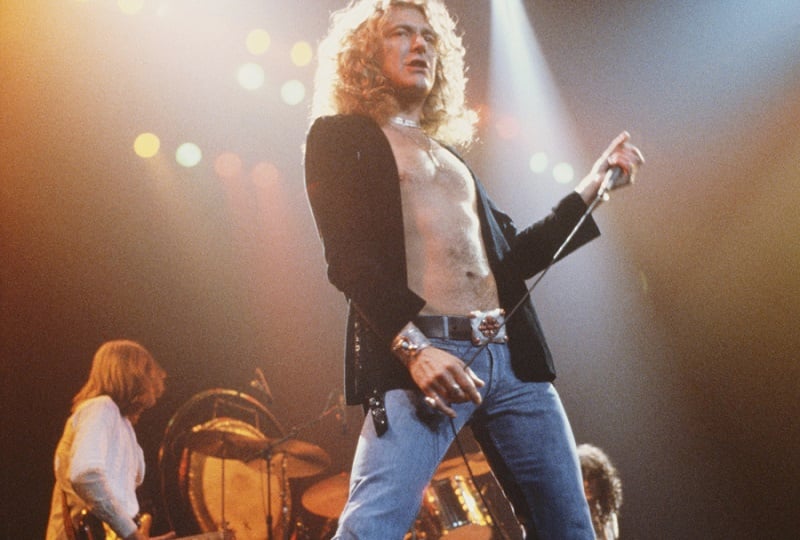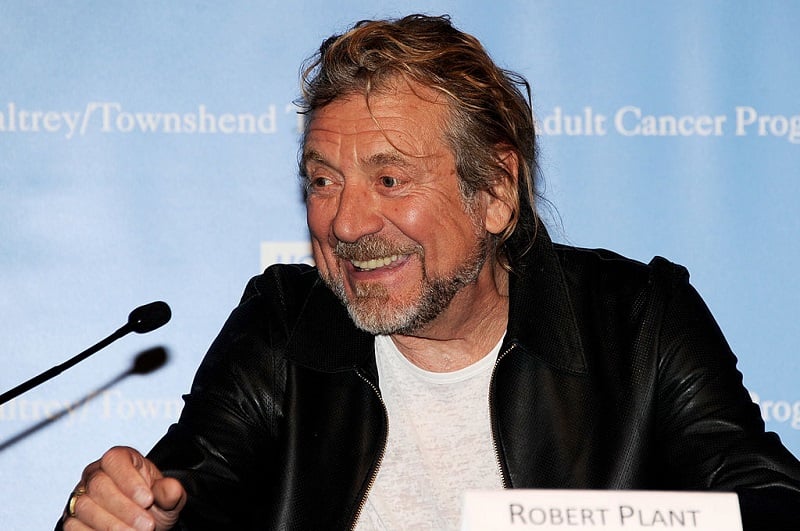How Robert Plant Thinks the Average Person Sees His Post-Zeppelin Career
What do you do after fronting the biggest band on earth? We know what The Beatles did in the 1970s. Between bickering at (and suing) one another, they all made solo albums, with varying degrees of success.
But Led Zeppelin wasn’t really anything like The Beatles. While they sold records and topped the charts like the Fab Four, Zep didn’t have three singer-songwriters in the band. So when the band dissolved after the death of John Bonham, no one knew what to expect.
Jimmy Page, Zep’s guitar virtuoso who produced the records and wrote most of the music, dashed between different bands and projects through the ’80s. John Paul Jones, who could play bass, produce, and arrange with the best of them, produced and played in various bands as well.
That left Robert Plant, the “golden god” who was Zep’s star vocalist/mouthpiece for all those years. Plant was determined to keep exploring and fronting bands — and that’s exactly what he did. But he knows most people don’t embrace his post-Zep material on the same level.
Plant said to cab drivers he’s just a soccer fanatic who sang ‘Stairway to Heaven’

On Plant’s wildly entertaining podcast Digging Deep (2019), the legendary singer kicks off the first episode by explaining exactly why he’s doing the show. Declaring the entire project “basically hugely indulgent,” Plant said he’s responding to fans who ask about his post-Zeppelin work.
So the concept of Digging Deep is exploring some of those solo albums and/or collaborations that slipped through the cracks over the years. Instead of talking about “Whole Lotta Love” or some other song you hear on the radio four times a day, Plant wanted to get into the deep tracks.
“So many people said to me, ‘Well, why don’t you ever do that song?’ Or, ‘What about that song where — what’s that all about?'” To answer these questions and look back at his solo career, Plant decided a podcast (of all things) was the answer.
From the start of the first episode, you realize Plant loves poking fun at himself. When asked if he appreciates the access he has, Plant basically said it depends. “I am, to many people … Ask a cab driver and they’ll tell you I’m a Wolverhampton Wanderers season-ticket holder who sang ‘Stairway to Heaven.'”
Plant kicked off his first podcast with 1993’s ‘Fate of Nations’

If you followed Plant’s solo career in the early ’80s, you knew you weren’t going to get high-octane metal screaming. All you had to do was listen to In Through the Out Door (Zep’s final studio album) to know the group had moved beyond that.
Plant’s early solo efforts certainly had quality — and overall a much lighter feel. Principle of Moments (1983), his second record, had brilliant tracks like “In the Mood” and “Big Log.” But Plant said he didn’t truly take over on a record until 1993’s Fate of Nations.
That was the subject of the first episode of Digging Deep. Plant explains how he wanted the instruments laid out and how he got the various players together to manage it. He said he finally “shed all the last remnants of ‘The Lemon Song'” with the record (and “Calling to You” in particular).
For those wondering, “What about the Zep?” Plant doesn’t take long to give fans their fix. In the third episode, he dives right in to “Achilles Last Stand,” the epic Presence track that stands as one of the band’s last great works.
Also see: The Led Zeppelin Masterpiece Robert Plant Wrote in a Wheelchair


